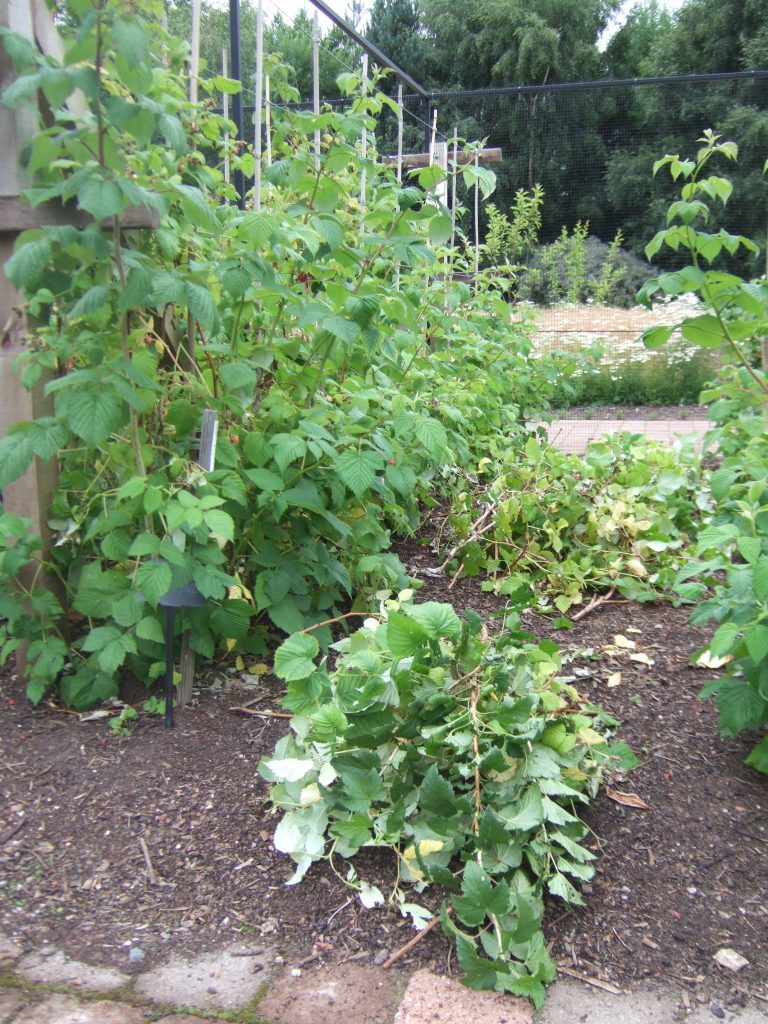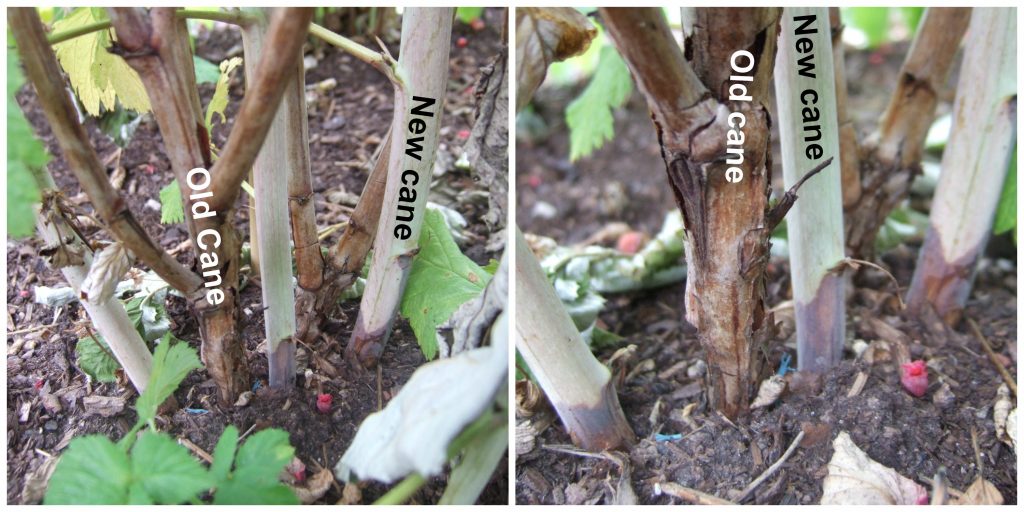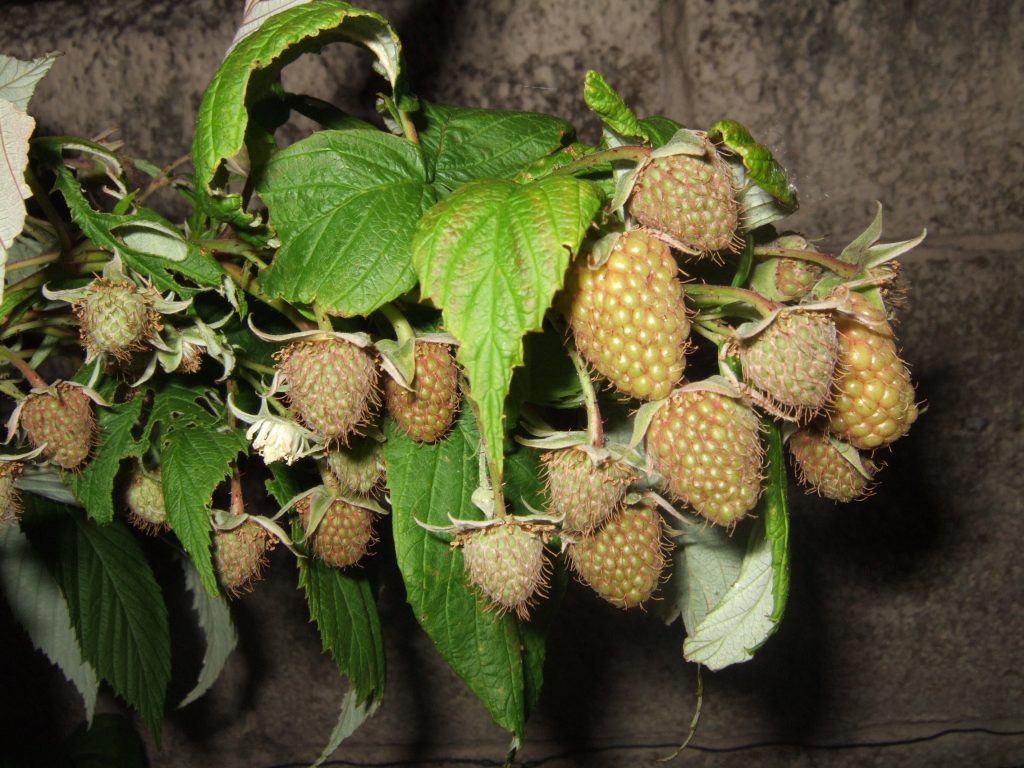Raspberr ies, one of the tastiest soft fruit, grow very well in Scotland. Many of the commercial varieties have been bred by the James Hutton Institute (formerly Scottish Crop Research Institute). There are many types of raspberries but they fall into two categories: summer or autumn fruiting. They grow on ‘canes’ – single stems emerging from a clump.
ies, one of the tastiest soft fruit, grow very well in Scotland. Many of the commercial varieties have been bred by the James Hutton Institute (formerly Scottish Crop Research Institute). There are many types of raspberries but they fall into two categories: summer or autumn fruiting. They grow on ‘canes’ – single stems emerging from a clump.
This year in the Edible Garden we have enjoyed a good crop of fruit. The summer fruiting raspberries have now finished and so we’ve just pruned them back. Pruning raspberry canes encourages new growth and promotes better fruiting.
Summer raspberries
Summer raspberry plants produce fruit on canes that grew last year. Each year new canes grow from the base of the clump.
How to prune them:
- All the canes that have produced fruit should be cut down to ground level (yes, all the way!)
- Leave new canes that have grown this year as they will produce fruit next year.
- It is usually fairly easy to differentiate between the new and old canes. The old canes are dark in colour and woody, whilst the new canes are pale and supple (see photo).
Autumn raspberries
These will start ripening soon and differ to summer raspberries because they fruit on canes that have grown in the same season.
How to prune them:
Wait until February or March and cut all the canes to ground level. This encourages lots of new shoots in the spring that will bear lots of delicious fruit the following autumn.



Cassie
How can you tell the difference between autumn & summer fruiting raspberries once they have fruited?
Benjamin Dell
Summer fruiting raspberries will generally finish fruiting by mid-august. Autumn fruiting raspberries start fruiting now and continue to fruit until October if the weather is okay.
If your plants are not complying to these general principles (all gardens and plants are different!) observe your plants carefully through the seasons and note if they are fruiting on old canes (summer rasps) or canes that are produced in the same season (autumn rasps). This is the essential difference between autumn and summer raspberries and determines how they should be pruned.